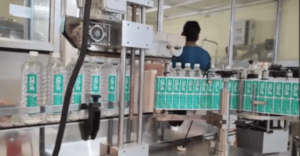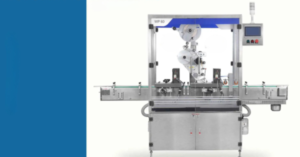In today’s competitive business environment, product identification is vital in ensuring goods are labeled efficiently and accurately. Automatic labeling machines have revolutionized the manufacturing and packaging processes, offering unparalleled benefits such as increased productivity, enhanced accuracy, and reduced costs.
These machines are capable of labeling various product types with high precision, whether it’s applying front and back labels, full wraparound labels, or decorative labels. By automating the process, businesses can streamline operations and achieve consistent labeling for products of different sizes and shapes.
Why Product Identification Matters
Effective product identification is essential for brand recognition and customer satisfaction. Labels convey critical information about the product, such as its name, ingredients, usage instructions, and safety warnings. Accurate labeling not only helps customers make informed decisions but also ensures compliance with industry regulations.
Advantages of Automatic Labeling Machines
1. Boosted Efficiency and Productivity
Automatic labeling machines significantly reduce the time needed to label products. Unlike manual methods, these machines can label thousands of items in minutes, eliminating human error and improving throughput. This makes them an invaluable asset in high-demand industries.
2. Superior Accuracy and Consistency
Precise label placement is critical for maintaining brand integrity. Automatic labeling machines ensure consistent and accurate application, even on irregularly shaped or uneven surfaces. This reduces labeling errors and ensures a uniform look across your entire product line.
3. Cost-effectiveness and Reduced Waste
Automating the labeling process cuts down labor costs by minimizing the need for manual intervention. These machines also optimize material usage, reducing waste and ensuring efficient use of resources, which is both cost-effective and environmentally friendly.
4. Versatility Across Industries
Automatic labeling machines are adaptable to various industries. They can handle bottles, jars, boxes, and cans while accommodating different label sizes, shapes, and materials. This flexibility allows businesses to meet diverse labeling requirements seamlessly.
Also Read: Find the Best Liquid Filling Machine for Sale: Comprehensive Guide
Applications of Automatic Labeling Machines
1.Food and Beverage
In this industry, labels provide vital information such as ingredients, nutritional values, and expiry dates. Automatic labeling machines ensure compliance with regulatory standards and deliver accurate information for consumer trust.
2.Pharmaceuticals
Precise labeling is crucial in the pharmaceutical sector to maintain patient safety. These machines accurately apply labels on vials, blister packs, and bottles, ensuring information like dosage and batch numbers is clear and legible.
3.Cosmetics
Attractive and high-quality labels are a must in the cosmetics industry to enhance product appeal. Automatic labeling machines ensure consistent and visually appealing labels on items like tubes, jars, and bottles.
4.Logistics and Distribution
For logistics, these machines label cartons and packages with precision, improving inventory management and enabling efficient tracking throughout the supply chain.
Future Trends in Automatic Labeling Technology
1. Artificial Intelligence (AI) Integration
AI will enhance labeling machines by enabling better image recognition, label placement, and error correction. These intelligent systems can adapt to varying product shapes and sizes, improving overall efficiency.
2. IoT Connectivity
The Internet of Things (IoT) will allow real-time data collection, performance monitoring, and remote control of labeling machines. This connectivity enables proactive maintenance and integration into smart manufacturing systems.
3. Sustainability and Eco-friendly Practices
As businesses prioritize sustainability, labeling machines are adopting energy-efficient components, recyclable materials, and waste reduction practices. These eco-friendly advancements align with global environmental goals.
4. Enhanced User Interfaces
User-friendly interfaces with touchscreens and intuitive controls make operating labeling machines simpler. These improvements reduce the learning curve and increase operator productivity.
5. Multi-functional Capabilities
Future machines will integrate additional features like printing batch numbers, applying security seals, or attaching promotional labels. This multi-functionality simplifies production lines and enhances efficiency.
Conclusion
Automatic labeling machines are transforming how industries manage product identification. They offer unmatched speed, accuracy, and adaptability, making them indispensable in sectors like food, pharmaceuticals, cosmetics, and logistics. With advancements in AI, IoT, and sustainable practices, these machines will continue to play a pivotal role in modern manufacturing. Businesses investing in this technology can expect improved productivity, reduced costs, and a competitive edge in the market.





